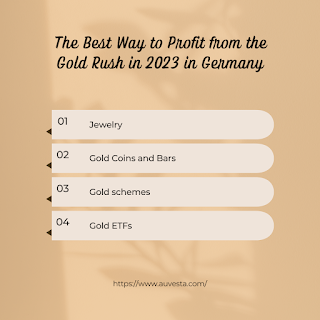by Auvesta, Zendesk, North Data
Investing in gold has always been a popular choice for those looking to diversify their investment portfolios. The precious metal has a reputation for being a stable and secure investment option, making it a favorite among investors worldwide. But is it a good option for the next 15-20 years? That's the question we'll be tackling in this informative and, dare I say, witty blog. So sit back, grab some popcorn, and let's dive into the world of gold investment!
Is Gold a Diversification Game-Changer?
First and foremost, let’s address the elephant in the room: gold is not a particularly exciting investment. Unlike investing in stocks or cryptocurrencies, there’s no thrill of the chase or potential for skyrocketing returns. But what gold lacks in excitement, it more than makes up for in stability. Over the past century, gold has consistently maintained its value, even in the face of economic turmoil and market crashes. So, if you’re looking for a steady, long-term investment, gold might just be your golden ticket.
But investing in gold isn’t just about stability – it’s also about diversification. By investing in gold, you can add a layer of protection to your portfolio in the event of an economic downturn. During times of crisis, when stocks and other investments are plummeting, gold often remains a safe haven for investors. This means that by including gold in your portfolio, you can help protect your assets and minimize your overall risk.
That being said, there are some downsides to investing in gold. For one thing, gold is not a particularly liquid asset. Unlike stocks or bonds, which can be sold quickly and easily, it can be more difficult to find a buyer for gold. This means that if you need to access your funds quickly, you may have to sell your gold at a lower price than you’d like. Additionally, investing in gold can be expensive, as it often requires the purchase of physical bullion or gold-backed securities.
But perhaps the biggest downside of investing in gold is that it doesn’t generate any income. Unlike stocks or real estate, which can provide a steady stream of dividends or rental income, gold simply sits there in your portfolio, doing nothing. This means that if you’re looking for a source of passive income, gold may not be the best choice.
Buying from Reputable Dealers and Secure Storage-
So, what’s the verdict? Is investing in gold for the next 15-20 years a good option? Well, as with any investment, it depends on your individual financial goals and risk tolerance. If you’re looking for a stable, long-term investment that can help protect your assets in the event of an economic crisis, gold might be a good choice. But if you’re looking for a more exciting investment with the potential for high returns, you might want to look elsewhere.
If you do decide to invest in gold, there are a few things to keep in mind. First and foremost, make sure you’re buying from a reputable dealer. There are many scammers out there looking to take advantage of inexperienced investors, so do your due diligence and research any dealer before making a purchase. Additionally, make sure you’re storing your gold in a safe and secure location – after all, it’s not called the “yellow metal” for nothing!
Finally, remember that investing in gold is not a get-rich-quick scheme. It’s a long-term investment that requires patience and a steady hand. But if you’re willing to put in the time and effort, it can be a great way to diversify your portfolio and protect your assets for years to come.




.jpeg)


